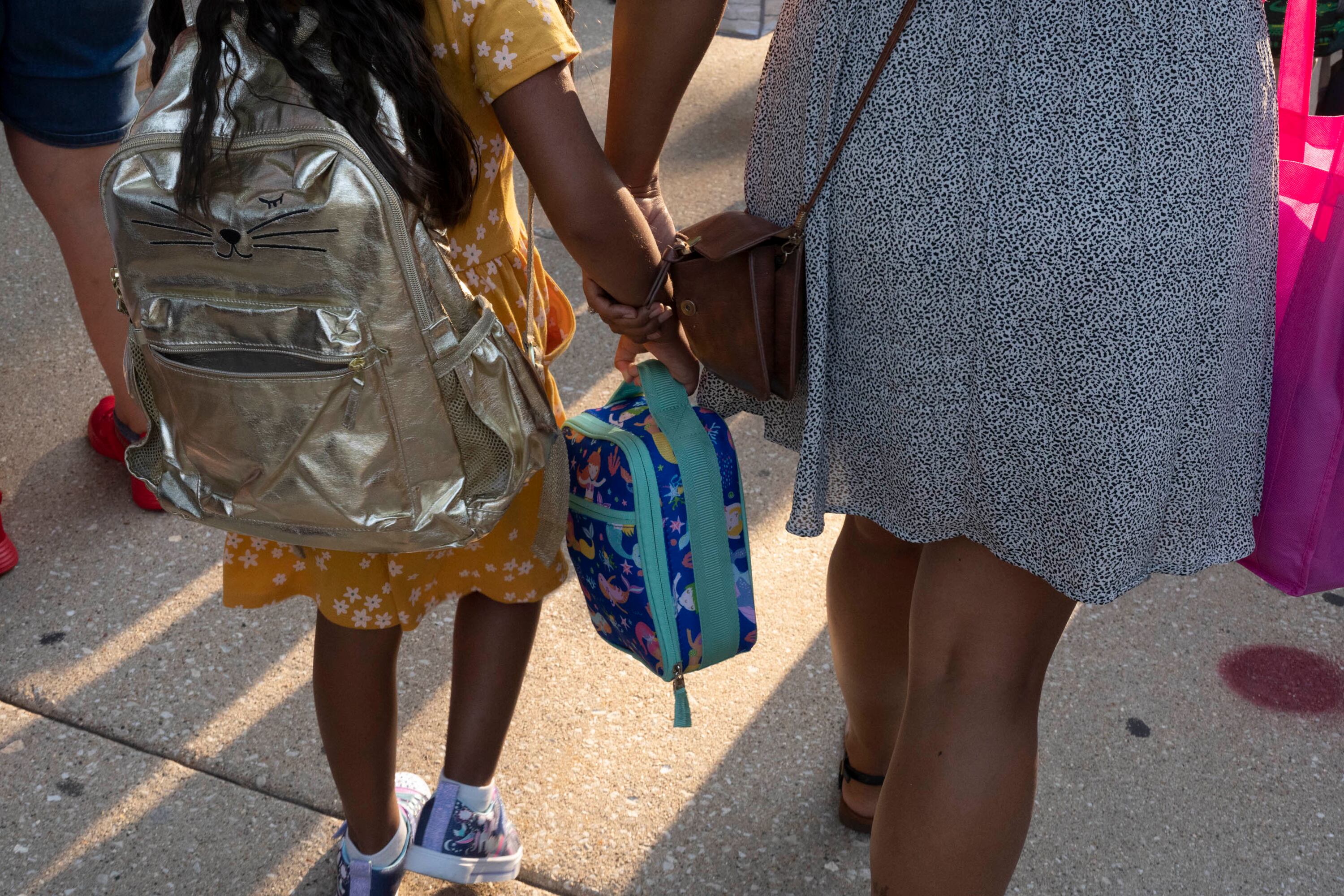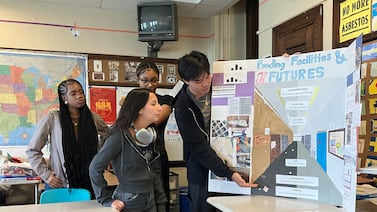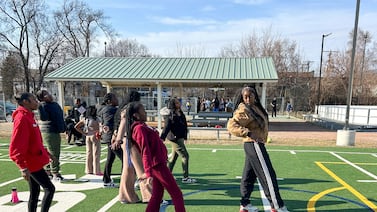Every summer, Nathan La Porte and his wife face a parenting challenge: Finding child care for their two school-age children.
This year, their 4-year-old son could continue attending private preschool like he does all year. But with their 6-year-old daughter finishing the school year at their local public school, they had to find summer child care that worked with the parents’ full-time work schedules.
Like many Chicago parents, La Porte continuously refreshed the Chicago Park District registration page at 9 a.m. in early May to enroll his daughter in camp.
“It’s identical to buying very popular concert tickets,” he said.
La Porte said they lined up six weeks of camp through the Park District for about $400 total. A week of private camp costs $350-500. La Porte said they also enrolled her in two separate one-week private camps for about $500 each.
Putting together a summer child care plan always has been challenging for parents, but is even more difficult since the COVID pandemic and the resulting facility closures, child care staffing shortages, changing work situations, and economic hardship.
Chalkbeat Chicago surveyed readers to learn more about the challenges.
“Cost was our number one factor,” said Cortney Ritsema. She and her husband enrolled their three children in Chicago Park District camps after hearing about them from fellow parents. Ritsema lives in Rogers Park and said private camps for three children would cost more than their rent.
“We have had to change our work schedules to accommodate the camp schedule, but for us having childcare we could afford was worth these accommodations,” Ritsema wrote in her answers to the Chalkbeat survey.
Park District camps are sought after by parents because they run for six weeks and cost less than most other camps in the city. A total of 14,582 children are registered across 189 Park District day camps this summer.
Megan Lawless navigated summer child care for the first time for her older child, who is 6 years old. She passed on trying to secure a spot at a Park District camp.
“I don’t take advantage of it because it’s ‘The Hunger Games’ to get a spot and it doesn’t feel very equitable, the way that they do it,” Lawless said.
She worries about taking spots needed by families who have less resources and limited options during the summer.
Instead, Lawless cobbled together a schedule of private camps and time at her mother’s house.
Park District day camps are limited by facility size and staffing, which they struggled with this year, according to Michele Lemons, director of communications. The district is still ramping up to pre-pandemic numbers.
Many parents said that availability has long been an issue in the organization’s programming.
Camp enrollment is on a first-come, first-served basis, but the district determines the number of spaces for online registration based on community needs and does not turn anyone away because of ability to pay, Lemons wrote in an email.
At the YMCA, about 5,000 children were registered for summer camps this year, according to Katy Broom, director of public relations and communications for YMCA Metropolitan Chicago. Although there were over 22,000 registrations, children are often signed up for multiple weeks of camps, according to Broom.
Finding child care is especially tough for single parents, like Dawna Harrison, who lives with her 4- and 5-year-old sons in University Village. This was also the first time Harrision had to find summer care, and it felt isolating to figure it out on her own, she said.
Ultimately, she was able to do a combination of YMCA camp and private and public summer schools. But the limited hours of these programs are a challenge, she said.
Isbeth White, a single parent with two school-age children in Ravenswood, couldn’t afford child care this summer, she said on the Chalkbeat survey. Instead, her children are living with their father and attending a camp in the suburbs, where there was more availability.
When Edgewater parent Silas Dameron lost his job in May, he and his wife were left scrambling as to how they would afford child care this summer for their 4- and 10-year-olds.
“We were looking at a choice between me staying home as free child care and me going back to work knowing that full-time child care was likely to eat up some or all of what I brought in,” Dameron said.
After considering the cost of care, expected income, mental health, and insurance, Dameron and his wife decided he would stay home to watch their daughters. Affordable child care has always been a challenge for his family, especially for their older daughter, who is on the autism spectrum, but Dameron feels fortunate they are able to make this summer work, he said.
Keana Russell, a CPS parent and bus aide in Austin, also had difficulty finding affordable child care for her 14-year-old daughter who has a learning and life skills disability. Although she was able to find care, getting her there around work hours is hard and the facility is struggling with staffing shortages, Russell wrote in the Chalkbeat survey.
Maddy Brigell signed up her two children for summer camp at the YMCA in Irving Park, which she said is affordable and convenient for her family. Her children already attend an after-school program run by the same staff during the school year. When camp is closed, she relies on her parents or a high school-aged neighbor for child care.
Many parents who responded to the Chalkbeat survey suggested solutions to the issues in summer child care, including more spots in Park District programs, a comprehensive list or database of available programs, and holding registrations earlier in the spring.
Naadia Owens, a parent of two children living in Woodlawn, said that parent communities play a critical role in finding care, especially because there is no easy way to find out what is available in the city.
Through these groups, Owens has learned about different camps, their cost, and what they provide for children. Many parents also coordinate carpooling, which can be especially helpful for working parents.
Eileen Pomeroy is a reporting intern for Chalkbeat Chicago. Contact Eileen at epomeroy@chalkbeat.org.
Correction: July 25, 2022: A previous version of this story misspelled Nathan La Porte’s last name without a space.





